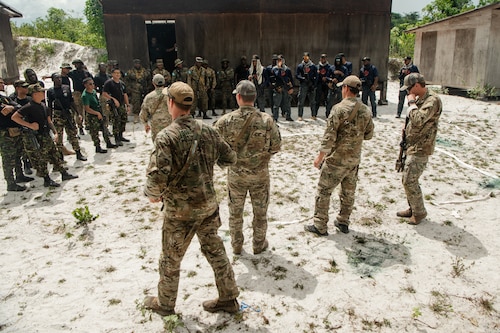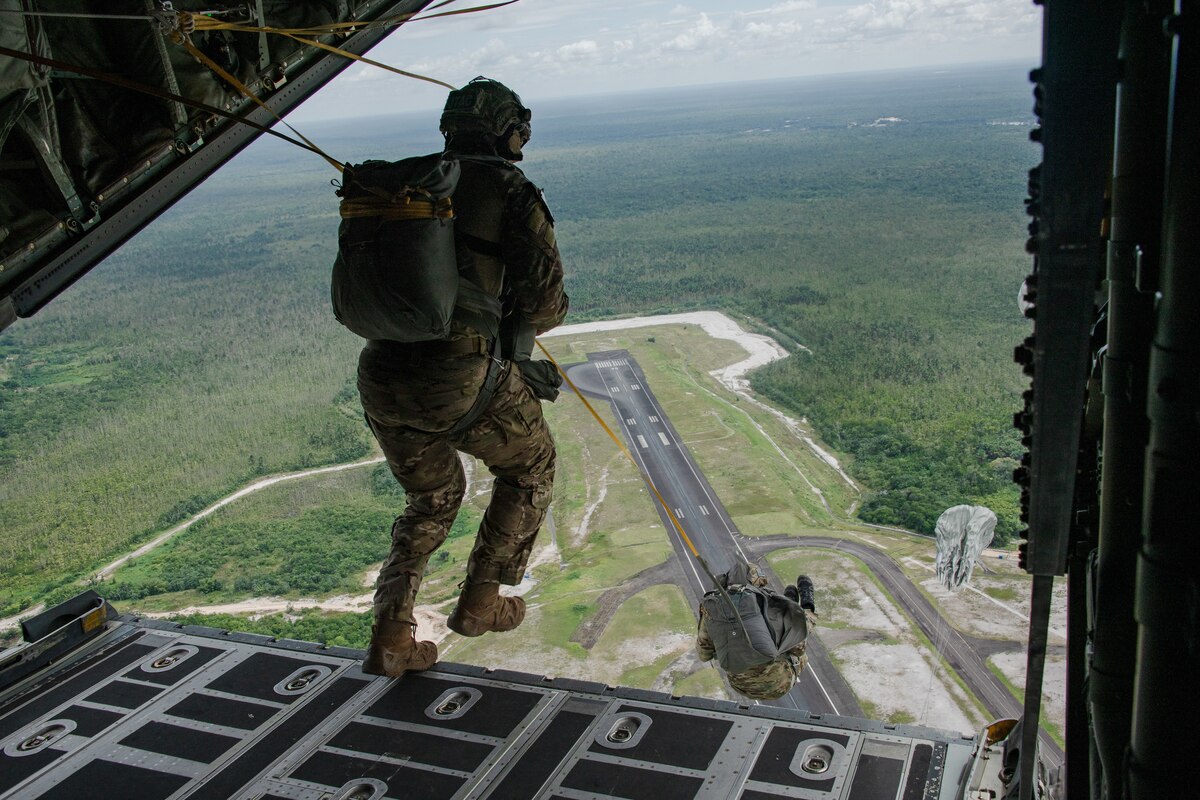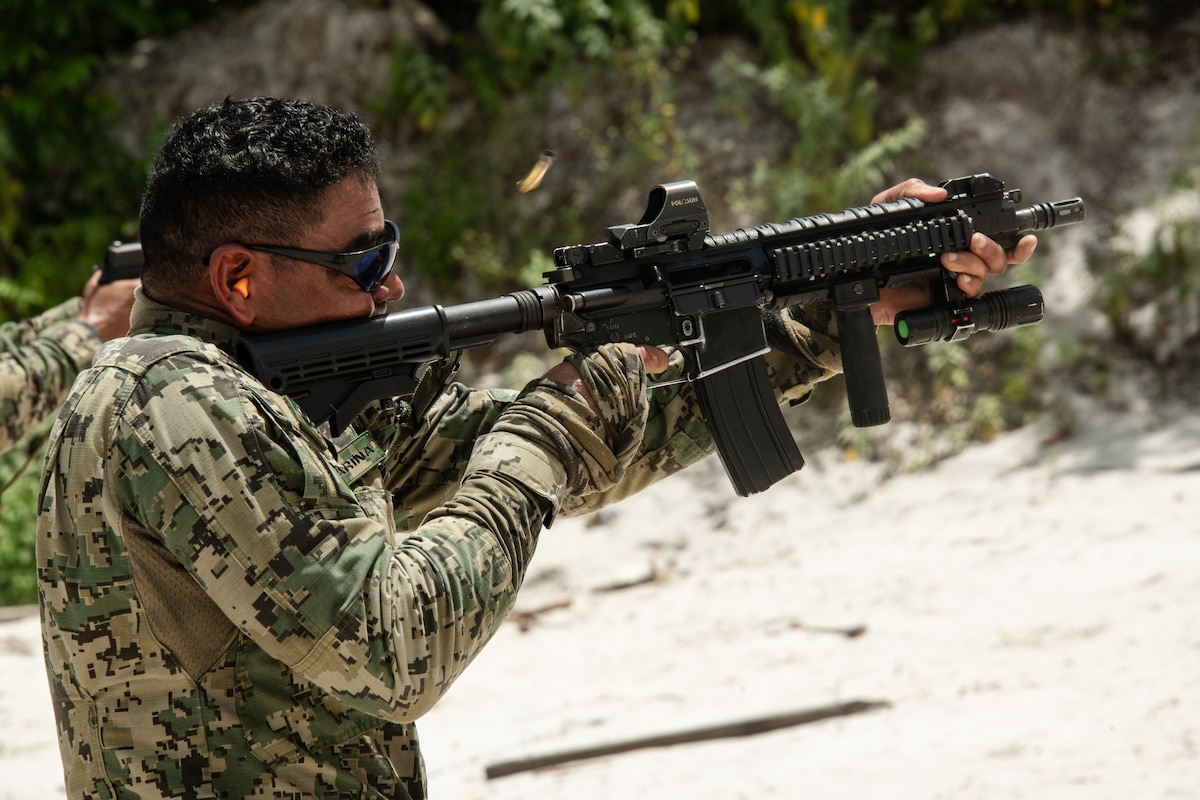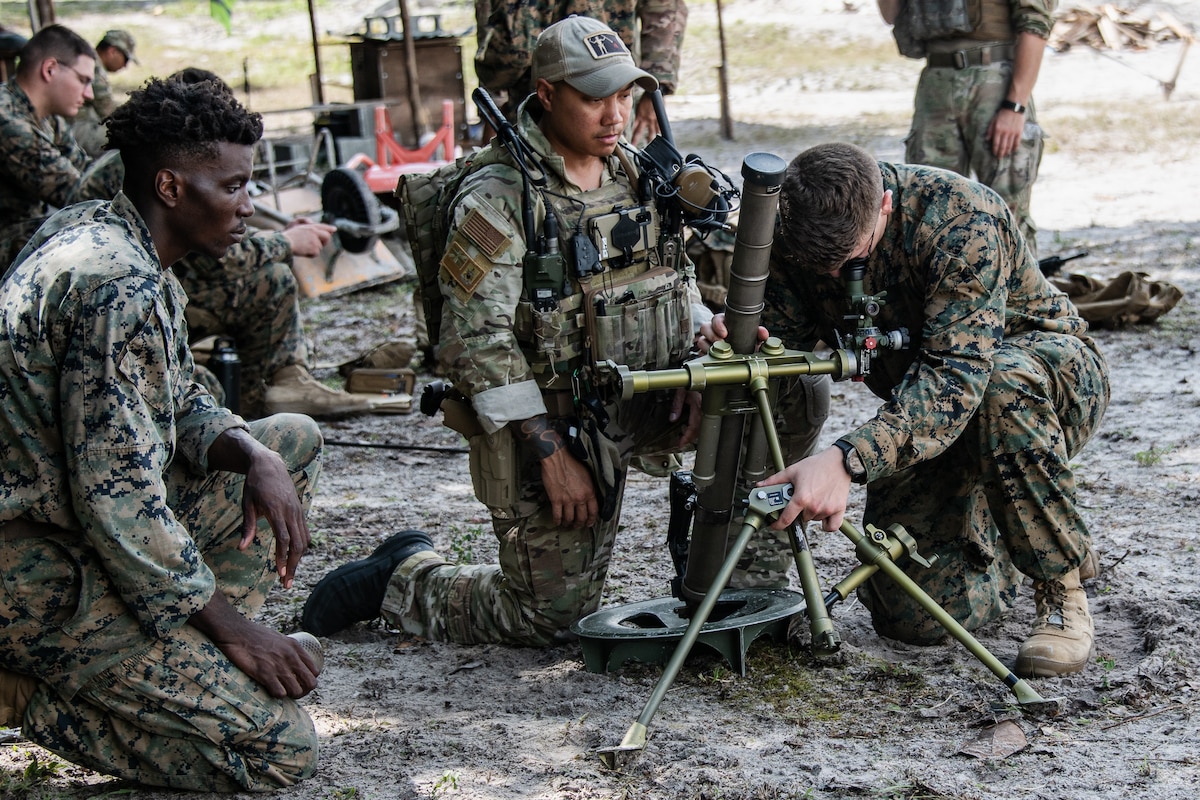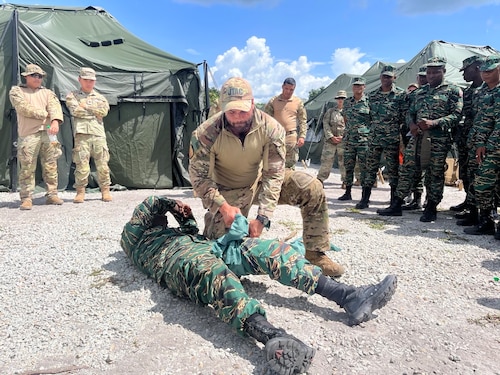Tradewinds 23, a two-week multinational exercise supporting the security of the Caribbean and Central America, wrapped up with a closing ceremony July 27.
Tradewinds 23 involved 21 nations and more than 1,500 people from all branches of the U.S. military, civilians and law enforcement across the partner nations.
U.S. military organizations that supported Tradewinds included Army and Air National Guard units from Alabama, Florida, Missouri, Oklahoma and the Virgin Islands; U.S. Southern Command; U.S. Army South; U.S. Marine Corps Forces South; Marine Forces Reserve, and the U.S. Coast Guard.
Events conducted during the exercise included jungle certification, airborne wing exchange, oil spill and flood simulation, and human rights and Women, Peace and Security training.
"Tradewinds 23 demonstrated that when nations unite for a common purpose, we become a better sum of our parts," said Maj. Jaime Castillo, Guyana's lead planner for the exercise. "This exercise has highlighted the importance of international cooperation, interoperability and shared responsibility we bear in securing a peaceful and stable world."
The 38th iteration of the exercise focused on foreign military interaction, maritime interdiction, ground security, and field training supporting U.S. Southern Command's priorities of building and maintaining security throughout the Caribbean and Central America. The annual exercise is designed to expand each nation's ability to plan and execute multinational operations, counter transnational organized crime, and provide better regional security.
"For 38 years, we have gathered to build partner nation capacity, strengthen partnerships, improve interoperability, and promote human rights," Gen. Laura Richardson, commander of U.S. Southern Command, said during the closing ceremony. "Tradewinds is a multidomain, multidimensional exercise, and it's no small task to put this exercise together.
"I'd also like to note that this year's exercise was the most complex in the 38-year history of Tradewinds. Transnational criminal organizations, malign state actors, cybercrime, environmental climate change, and irregular migration continue to grow in scope and intensity, posing a significant challenge to the national security of all of us and the Western Hemisphere."
Tradewinds 23 training focus areas included human rights awareness, anti-trafficking operations, marksmanship, jungle warfare, military support to law enforcement, small unit and confined area security tactics, airborne operations, cybersecurity, humanitarian aid and disaster relief, and maritime skills.
Participants trained across Guyana, in Georgetown, Camp Ayanganna, Camp Stephenson, Camp Seweyo, Air Base London, the Guyana Police Academy, and the Jungle Amphibious Training School in Makouria.
Sarah-Ann Lynch, U.S. ambassador to Guyana, said Women, Peace and Security training "was also integrated into several of the training tracks this year, from cyber defense to public order. Highlighting again the importance of gender considerations in military and police operations."
Lynch commended the Guyana Defence Force for its commitment to human rights after it signed onto the U.S. Southern Command Human Rights Initiative.
Nations participating in the exercise included Antigua and Barbuda, Bahamas, Belize, Bermuda, Brazil, Canada, Colombia, Dominica, Dominican Republic, France, Grenada, Guyana, Jamaica, Mexico, St. Kitts and Nevis, Saint Lucia, Saint Vincent and the Grenadines, Suriname, Trinidad and Tobago, the United Kingdom, and the United States.
"Exercise Tradewinds 2023 was truly a wonderful experience," said Army Chief Brigadier Omar Khan, Guyana Defence Force. "And I congratulate all of you here today for your commitment and your service. We are grateful for this opportunity to train, learn new skills, and make new friends."

